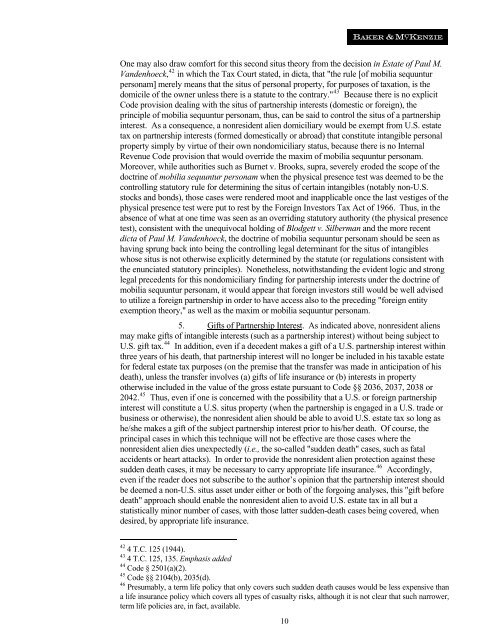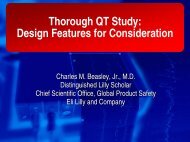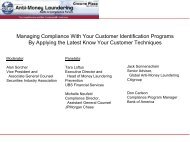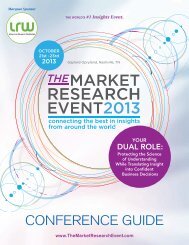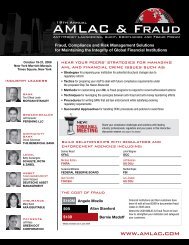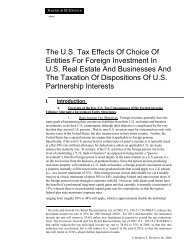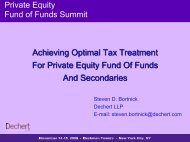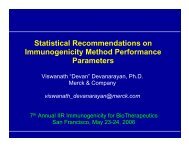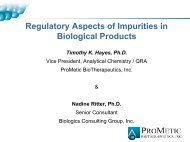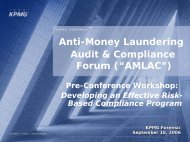The US Tax Effects Of Choice Of Entities For Foreign Investment - IIR
The US Tax Effects Of Choice Of Entities For Foreign Investment - IIR
The US Tax Effects Of Choice Of Entities For Foreign Investment - IIR
Create successful ePaper yourself
Turn your PDF publications into a flip-book with our unique Google optimized e-Paper software.
One may also draw comfort for this second situs theory from the decision in Estate of Paul M.<br />
Vandenhoeck, 42 in which the <strong>Tax</strong> Court stated, in dicta, that "the rule [of mobilia sequuntur<br />
personam] merely means that the situs of personal property, for purposes of taxation, is the<br />
domicile of the owner unless there is a statute to the contrary." 43 Because there is no explicit<br />
Code provision dealing with the situs of partnership interests (domestic or foreign), the<br />
principle of mobilia sequuntur personam, thus, can be said to control the situs of a partnership<br />
interest. As a consequence, a nonresident alien domiciliary would be exempt from U.S. estate<br />
tax on partnership interests (formed domestically or abroad) that constitute intangible personal<br />
property simply by virtue of their own nondomiciliary status, because there is no Internal<br />
Revenue Code provision that would override the maxim of mobilia sequuntur personam.<br />
Moreover, while authorities such as Burnet v. Brooks, supra, severely eroded the scope of the<br />
doctrine of mobilia sequuntur personam when the physical presence test was deemed to be the<br />
controlling statutory rule for determining the situs of certain intangibles (notably non-U.S.<br />
stocks and bonds), those cases were rendered moot and inapplicable once the last vestiges of the<br />
physical presence test were put to rest by the <strong>For</strong>eign Investors <strong>Tax</strong> Act of 1966. Thus, in the<br />
absence of what at one time was seen as an overriding statutory authority (the physical presence<br />
test), consistent with the unequivocal holding of Blodgett v. Silberman and the more recent<br />
dicta of Paul M. Vandenhoeck, the doctrine of mobilia sequuntur personam should be seen as<br />
having sprung back into being the controlling legal determinant for the situs of intangibles<br />
whose situs is not otherwise explicitly determined by the statute (or regulations consistent with<br />
the enunciated statutory principles). Nonetheless, notwithstanding the evident logic and strong<br />
legal precedents for this nondomiciliary finding for partnership interests under the doctrine of<br />
mobilia sequuntur personam, it would appear that foreign investors still would be well advised<br />
to utilize a foreign partnership in order to have access also to the preceding "foreign entity<br />
exemption theory," as well as the maxim or mobilia sequuntur personam.<br />
5. Gifts of Partnership Interest. As indicated above, nonresident aliens<br />
may make gifts of intangible interests (such as a partnership interest) without being subject to<br />
U.S. gift tax. 44 In addition, even if a decedent makes a gift of a U.S. partnership interest within<br />
three years of his death, that partnership interest will no longer be included in his taxable estate<br />
for federal estate tax purposes (on the premise that the transfer was made in anticipation of his<br />
death), unless the transfer involves (a) gifts of life insurance or (b) interests in property<br />
otherwise included in the value of the gross estate pursuant to Code §§ 2036, 2037, 2038 or<br />
2042. 45 Thus, even if one is concerned with the possibility that a U.S. or foreign partnership<br />
interest will constitute a U.S. situs property (when the partnership is engaged in a U.S. trade or<br />
business or otherwise), the nonresident alien should be able to avoid U.S. estate tax so long as<br />
he/she makes a gift of the subject partnership interest prior to his/her death. <strong>Of</strong> course, the<br />
principal cases in which this technique will not be effective are those cases where the<br />
nonresident alien dies unexpectedly (i.e., the so-called "sudden death" cases, such as fatal<br />
accidents or heart attacks). In order to provide the nonresident alien protection against these<br />
sudden death cases, it may be necessary to carry appropriate life insurance. 46 Accordingly,<br />
even if the reader does not subscribe to the author’s opinion that the partnership interest should<br />
be deemed a non-U.S. situs asset under either or both of the forgoing analyses, this "gift before<br />
death" approach should enable the nonresident alien to avoid U.S. estate tax in all but a<br />
statistically minor number of cases, with those latter sudden-death cases being covered, when<br />
desired, by appropriate life insurance.<br />
42 4 T.C. 125 (1944).<br />
43 4 T.C. 125, 135. Emphasis added<br />
44 Code § 2501(a)(2).<br />
45 Code §§ 2104(b), 2035(d).<br />
46 Presumably, a term life policy that only covers such sudden death causes would be less expensive than<br />
a life insurance policy which covers all types of casualty risks, although it is not clear that such narrower,<br />
term life policies are, in fact, available.<br />
10


